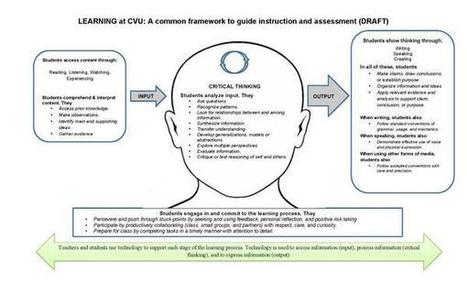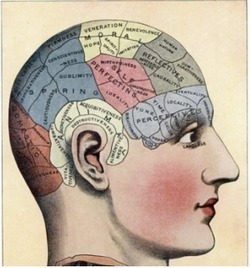"Beth Dichter's insight:
How do students learn? There are many concepts that look at this question, and the visual above in one way to view this.
To the left you have a box that shows that students take in content by reading, writing, listening and experiencing, and that to comprehend and interpret content they must have prior knowledge, make observations, identify main and supporting ideas and gather evidence.
In the middle section the student has to take the input and use critical thinking skills. To do this they must also be engaged in and committed to the learning process.
And the final section looks at their output, how does the student show what they have learned.
In all phases technology may play a role.
This visual would be great to spark discussion amongst faculty."
Via Beth Dichter



 Your new post is loading...
Your new post is loading...











How do students learn? There are many concepts that look at this question, and the visual above in one way to view this.
To the left you have a box that shows that students take in content by reading, writing, listening and experiencing, and that to comprehend and interpret content they must have prior knowledge, make observations, identify main and supporting ideas and gather evidence.
In the midle section the student has to take the input and use critical thinking skills. To do this they must also be engaged in and committed to the learning process.
And the final section looks at their output, how does the student show what they have learned.
In all phases technology may play a role.
This visual would be great to spark discussion amongst faculy.
Aprendizagem requer mudanças no cérebro.
Uma conversa interessante sobre pensamento critico.